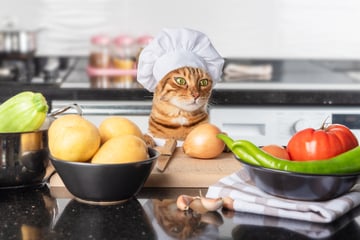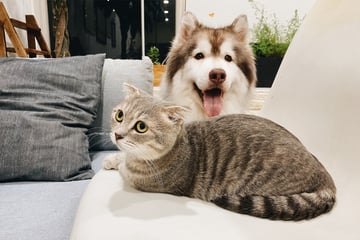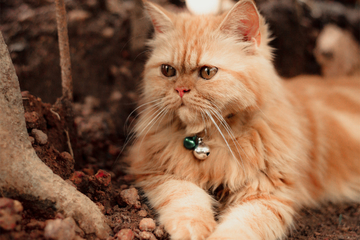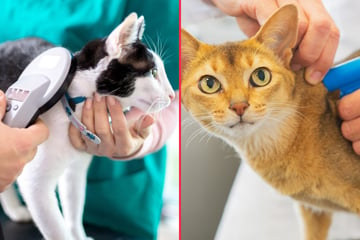Can cats drink milk? Are cats lactose intolerant?
For many generations, people have thought that cats and milk go together like a ball and racket. Sadly, that's not entirely true, and we're about to show you why. Are cats lactose intolerant? Can they drink milk?
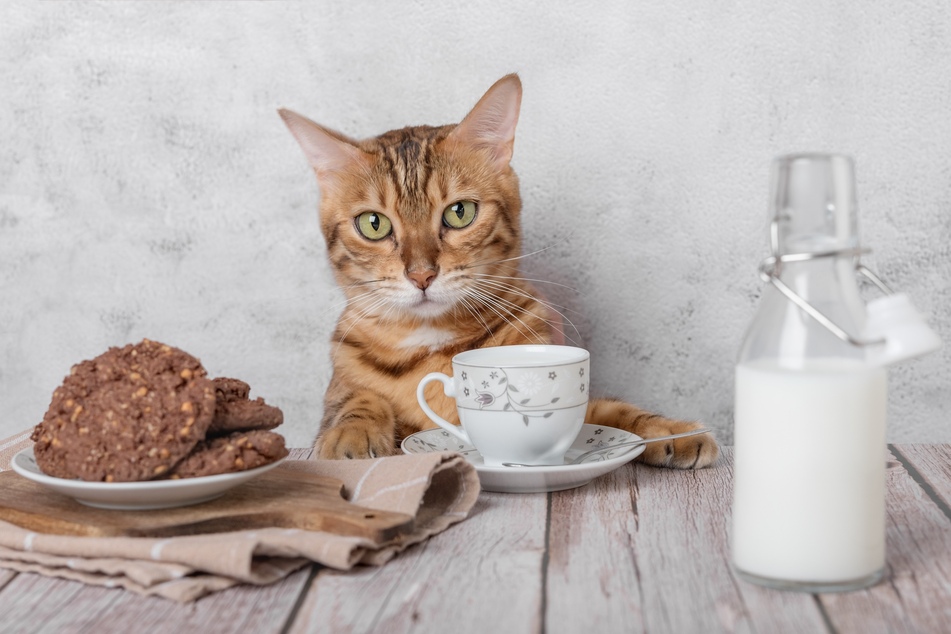
It's in almost every child's story book: The kitten, lapping peacefully at a small bowl of delicious and nutritious milk. There are few things more ubiquitous, yet cats and milk don't agree with each other nearly as well as you'd think.
In this cat guide, TAG24 will take a look at whether cats can drink milk. Are cats lactose intolerant, what milk can they consume, and is there anything else we should be concerned about?
Are cats lactose intolerant?
Cats are incapable of properly processing and breaking down lactose within their bodies, making them severely lactose intolerant. Lactose is a type of sugar commonly found in dairy milk. Its enzymes can't be broken down in a cat's stomach, causing a variety of gastrointestinal issues.
If your cat has milk, it will begin to experience a variety of symptoms as a result of the lactose, which we will describe this below. With that in mind, cats will react differently cat-to-cat. Some will process it better, some worse, and others may experience worsening lactose intolerance as they age.
While the symptoms experienced due to lactose intolerance are generally pretty mild, they can become more serious if lactose is consumed regularly. As a result, it is best to be careful.
Can cats drink milk?
Cats should only drink natural cat milk, and should never be given dairy milk from a cow. They are just simply not designed or meant to process cow's milk. Their bodies can't tolerate the lactose, as we just discussed, and as a result, they should avoid the stuff as much as possible.
Due to their lactose intolerance, cats will experience the follow symptoms when they drink dairy milk:
- Gas and flatulence
- Diarrhea
- Vomiting
- Dehydration
- Bloating
- Pain in the abdominal area
- Constipation
- Extreme thirst
The reality is that if your cat drinks a little bit of milk from your cereal bowl, you don't need to freak out. Your fluffy friend will be completely fine, just monitor for any signs of the above symptoms, make sure it doesn't consume more, and act quickly if things go wrong.
Important: This is not a thorough or complete list of symptoms. If you are concerned about your kitty, make sure to take it to the vet as soon as possible.
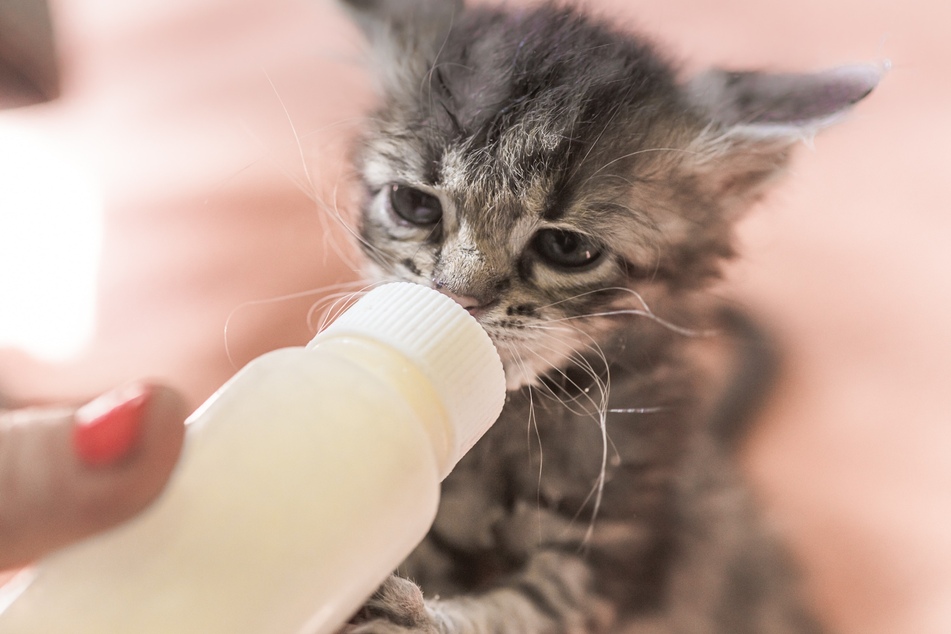
What milk can cats drink?
Cats can drink, and indeed should only drink, natural cat milk during infancy, or milk specifically designed for cats. You can purchase alternative cat milks from pet shops around the world, and often from your veterinarian as well, but it is best to get advice on this before moving forward.
Much like humans, cats aren't meant to drink the milk of their mother once they have grown up. Cat milk is rich in the vitamins and proteins that kittens need to develop into strong and healthy feline friends as they get older, but will likely result in serious weight gain if consumption continues indefinitely.
As a result, once your cat is an adult, it should no longer be given any milk. It will naturally stop drinking its mother's milk when it becomes time to do so, and you shouldn't present it with alternative milk unless medically necessary as per your doctor's orders.
Can cats drink oat or almond milk?
Neither oat milk nor almond milk will cause your cat any harm if it occasionally takes a sip, but it won't do it any good, either. Milk alternatives are generally safe for cats, but yield no nutritional advantages. They are extremely low in protein, high in fat, and don't provide much calcium either.
While alternative milks can be good for humans who are lactose intolerant or those who want to go vegan or help the environment, cats are not concerned with such matters. Your kitty should be given professional cat food – not milk – that is extremely high in protein and is derived from various animal products.
Your cat's not going to be poisoned if it sips a bit of oat milk, it'll probably enjoy it due to the large amount of fat found in such products, but if it consumes the stuff on a regular basis it is likely to experience weight gain. On top of that, if oat or almond milk becomes a cornerstone of a cat's diet, it will quickly start to develop nutritional problems.
The solution is simple: Just don't give your cat any milk, whether that's cow milk or some alternative plant-based drink. It's not healthy for them and, to be honest, they probably won't like the stuff all that much!
Can cats drink lactose free milk?
Lactose-free milk will cause your cat no harm if consumed in small quantities, but is also unnecessary for its diet. While this does circumvent the problems induced by your cat's lactose intolerance, lactose free milk contains a variety of artificial sweeteners that could, in themselves, cause stomach problems.
To minimize risk, simply avoid feeding your cat milk! Though lactose-free milk won't cause the same upset as normal diary milk will, and plant-based alternatives are relatively harmless, milk isn't part of a cat's diet once it has grown up. There's just no need for it!
What's the difference between normal milk and cat milk?
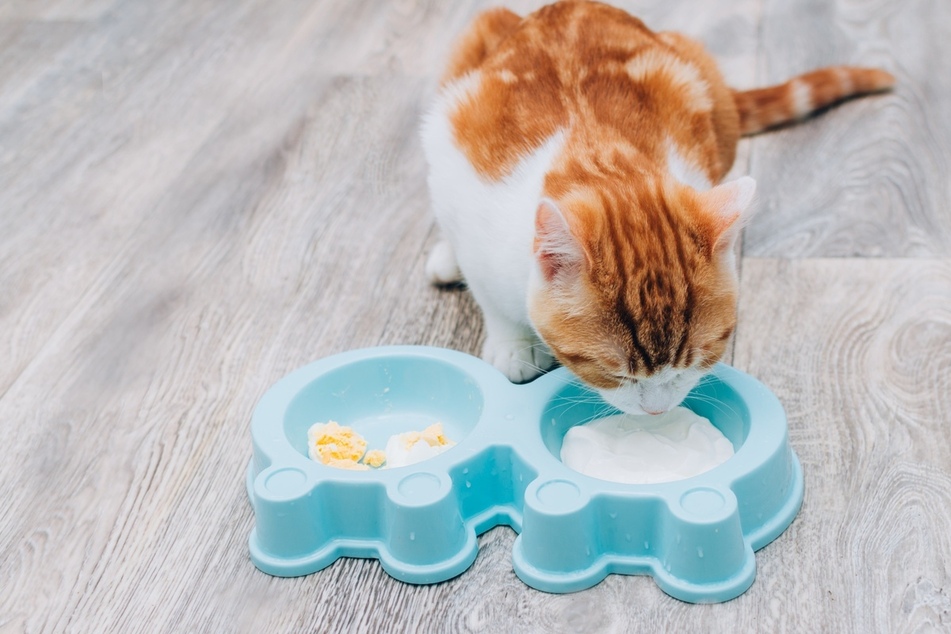
Female cat milk is composed of nutrients like taurine, arginine, and methionine, each of which assist in different stages of a cat's development. The kittens are fed, like most mammals, through the teats of their mother, and will naturally stop doing so once they are strong enough, big enough, and developed enough to ween themselves off milk.
It's vital for a cat's development that it drinks milk and, as a result, kittens that are taken from their mothers early should be provided with vat milk specifically designed for them and sold at vets and pet shops. These alternative milks are made to contain all the necessary proteins, vitamins, nutrients, and amino acids that make the stuff similar in composition to a cat mother's milk.
Lactose is not found in the milk of a cat. Instead, their milk is extremely high in protein, providing them with far more energy than what is contained in the standard bottle of dairy milk. In general, kittens will only drink their mother's milk for the first three or four weeks of their life.
In comparison, dairy milk from a cow is very low in the nutrients necessary for healthy cat growth, it contains lactose, and is very high in fat. As a result, your kitten will be undernourished, will likely have gastrointestinal issues, and may not develop properly.
Cats and dairy don't generally mix!
Feeding cats any dairy products which contain lactose, such as cheese and cream for example, is simply not a good idea. Cat milk that has been purchased directly from the veterinarian or at a pet store can substitute for cow milk if necessary, but once your kitty has grown up, there is no need for milk in its diet.
Meanwhile, natural yogurt is actually OK, as the fermentation process required to make the stuff actually destroys the lactose. As a result, it's OK to feed your cat a little bit of yogurt here and there, though you still shouldn't make it a permanent part of its diet.
It's always a good idea to limit your cat's diet to just the things that are important for its strength and growth. Dairy is never among these things, and should therefore be avoided altogether. Trust us, you won't regret it!
Cover photo: 123RF/Svetilos
